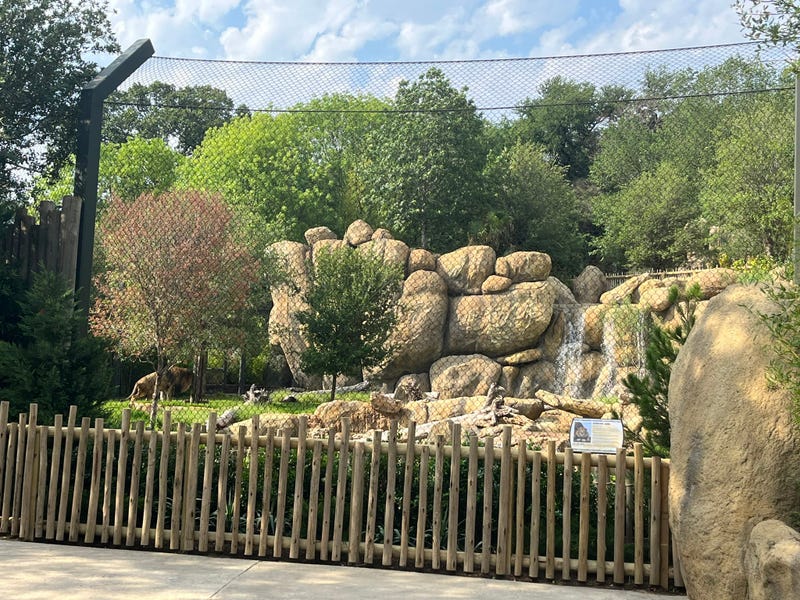
FORT WORTH (1080 KRLD)- The Fort Worth Zoo has opened the third phase of its "A Wilder Vision" project. The $130 million campaign updates habitats, adds new spaces and provides new options to watch and learn about the animals.
Thursday, the "Predators of Asia & Africa" exhibit opened at the zoo. The exhibit includes spaces for the zoo's African lions, African painted dogs, cheetahs, striped hyenas, Sumatran tigers and more than 25 bird species.
The exhibit includes two species of leopard that are new to the zoo: the clouded leopard and African leopard.
"You can call a lot of these animals the 'big cats,' but they are entirely different animals. They're individual species, they live in different parts of the world," says the Fort Worth Zoo's Avery Elander. "They have different habitats and climates. Most all of them are endangered or at risk of being endangered. They're incredibly important to their ecosystem, so we want to introduce our guests to all of these animals."
Elander says the updated habitats can show visitors how each species of animal is different and inspire them to learn more. When the exhibit opened Thursday morning, people were already lining up to see it.
"I always loved this place as a kid. I've been here a hundred times. We're excited to be here," one man visiting with his wife and kids said.
"We watched a bunch of YouTube videos about it last night," his wife said. "That just got us so excited to actually be here and see it ourselves. We can't wait."
Ramona Bass, the chair of the Fort Worth Zoo Board of Directors, says the updated habitats can give animals that may be endangered a place to thrive in a natural space.
"National Geographic put it pretty well, I think: Zoos are the last refuge against the rising tide of extinction," she says.
Bass says the habitats can also give scientists a chance to see how animals behave and interact with each other.
"We can learn many things from our animals in captivity, many things that will help in the wild," she says.
For people visiting the zoo, Bass says the expanded habitats can spark kids' interest in science.
"That is really a serious goal," she says. "That's why everybody is talking about STEM learning because there are so few people getting involved in that kind of work. Hopefully, we will inspire a whole new generation of conservationists."
LISTEN on the Audacy App
Tell your Smart Speaker to "PLAY 1080 KRLD"
Sign Up to receive our KRLD Insider Newsletter for more news

